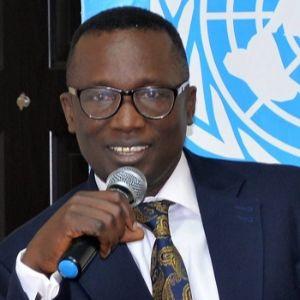"For all of us, the Cooperation Framework details what we shall work together on and how we shall work together."
The Federal Government of Nigeria and the United Nations system in the country, on Thursday 1 December 2022, signed the United Nations Sustainable Development Cooperation Framework (UNSDCF) 2023-2027, to achieve developmental objectives of ensuring inclusiveness, sustainability and accountability in Nigeria.
The Minister of State for Budget and National Planning, Prince Clem Agba signed on behalf of the Federal Government while UN Resident and Humanitarian Coordinator in Nigeria, Matthias Schmale, signed for the UN.
"The Cooperation Framework is a five-year blueprint towards meeting the 2030 Agenda and its SDGs. But more fundamentally, it is a commitment by the Government and UN to deliver for the people of Nigeria." Schmale explained, "For all of us, the Cooperation Framework details what we shall work together on and how we shall work together. It can be seen as the UN’s response to the Government’s plea to support it in addressing Nigeria’s greatest challenges which have been laid out in the current National Development Plan."
He cited the government's aim to, by 2025, create 21 million full-time jobs, lift 35 million people out of poverty, and get 5.5 million out-of-school children back into education. The Minister acknowledged that the Cooperation Framework "is a strategic framework that will assist Nigeria in addressing development and humanitarian challenges, leveraging UN leadership, comparative advantages and capacity assessment." Prince Agba emphasised that the Framework was guided by the overarching principles of the 2030 Agenda for Sustainable Development Goals and the African Charter 2063 and aligns with Nigeria’s National Development Plan (NDP) 2021-2025, which aims to accelerate economic growth.
The highlight of the event was the inauguration of a Steering Committee for the five-year strategic plan


















